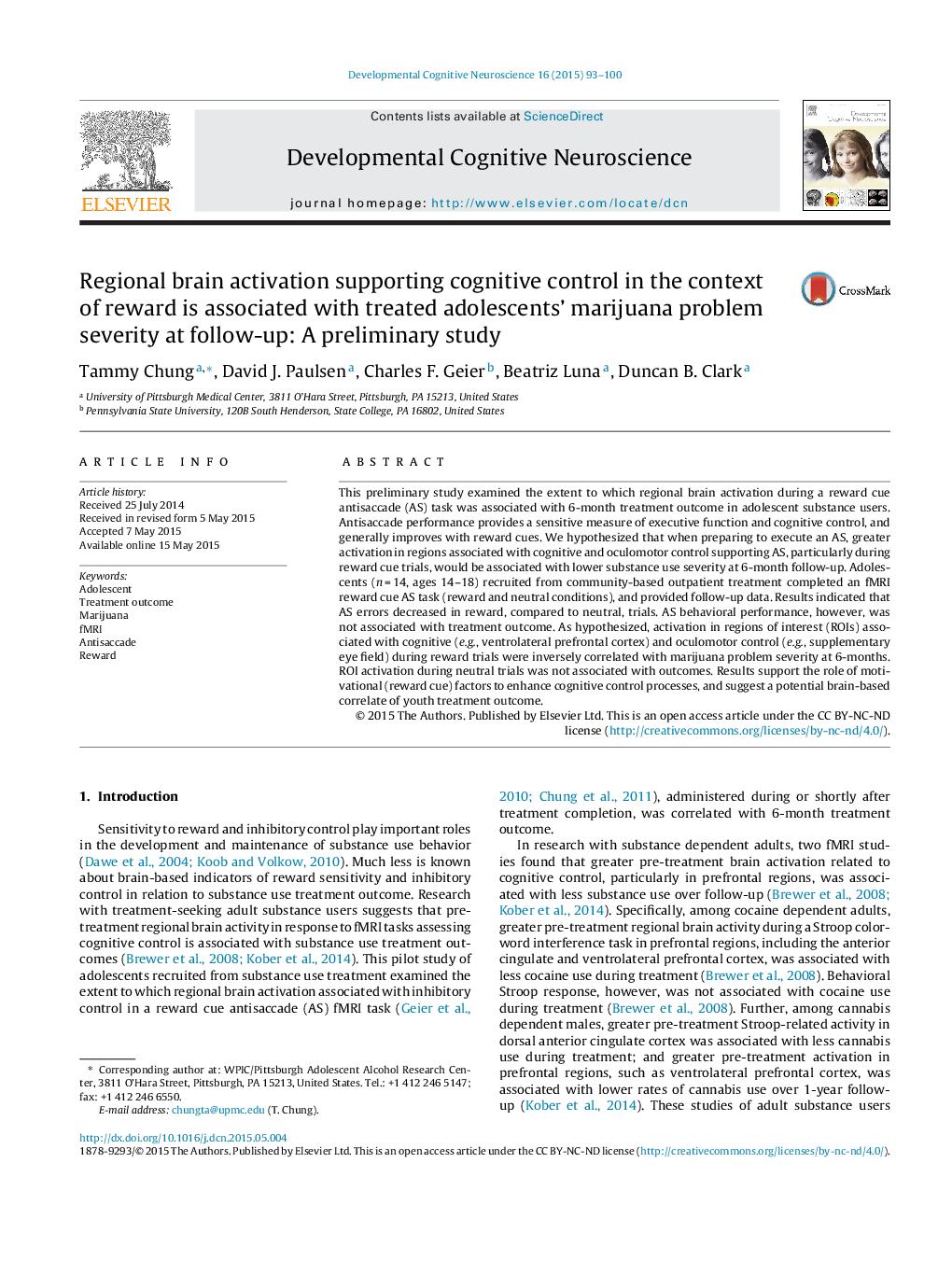| Article ID | Journal | Published Year | Pages | File Type |
|---|---|---|---|---|
| 4316521 | Developmental Cognitive Neuroscience | 2015 | 8 Pages |
•Activation during rewarded antisaccade task correlated with later marijuana severity.•Antisaccade behavioral performance was not associated with treatment outcome.•Preliminary results suggest a brain-based correlate of treatment outcome in youth.
This preliminary study examined the extent to which regional brain activation during a reward cue antisaccade (AS) task was associated with 6-month treatment outcome in adolescent substance users. Antisaccade performance provides a sensitive measure of executive function and cognitive control, and generally improves with reward cues. We hypothesized that when preparing to execute an AS, greater activation in regions associated with cognitive and oculomotor control supporting AS, particularly during reward cue trials, would be associated with lower substance use severity at 6-month follow-up. Adolescents (n = 14, ages 14–18) recruited from community-based outpatient treatment completed an fMRI reward cue AS task (reward and neutral conditions), and provided follow-up data. Results indicated that AS errors decreased in reward, compared to neutral, trials. AS behavioral performance, however, was not associated with treatment outcome. As hypothesized, activation in regions of interest (ROIs) associated with cognitive (e.g., ventrolateral prefrontal cortex) and oculomotor control (e.g., supplementary eye field) during reward trials were inversely correlated with marijuana problem severity at 6-months. ROI activation during neutral trials was not associated with outcomes. Results support the role of motivational (reward cue) factors to enhance cognitive control processes, and suggest a potential brain-based correlate of youth treatment outcome.
